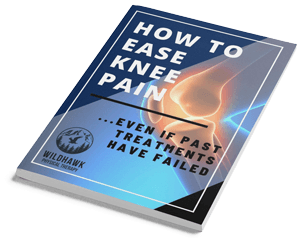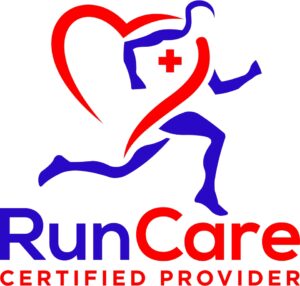
Introduction
Congratulations on this incredible journey into motherhood! As you embark on the beautiful adventure of pregnancy, taking care of your body becomes more crucial than ever. In this comprehensive guide, we’ll explore the vital aspects of nutrition and exercise tailored to support the health and well-being of expecting mothers. Whether you’re a first-time mom or adding to your family, understanding the symbiotic relationship between nutrition and exercise during pregnancy is key to a healthy and thriving pregnancy.
Nutrition for Two: Eating for You and Your Baby
Eating well during pregnancy is not just about consuming more calories; it’s about making every calorie count. Here’s a detailed breakdown of essential nutrients for expecting mothers:
- Folate and Folic Acid: These B-vitamins are crucial for preventing neural tube defects in the baby. Folate, the natural form of the vitamin, is found in abundance in leafy greens, citrus fruits, beans, and fortified grains. On the other hand, folic acid, the synthetic form, is often found in prenatal supplements and fortified foods. Ensuring an adequate intake of both forms is vital for the proper development of the baby’s spinal cord and brain.
- Iron: Pregnant women need more iron for the increased blood volume that supports the growing baby. Incorporate a variety of iron-rich foods into your diet, such as lean meats, beans, fortified cereals, and dark leafy greens. Iron is essential for preventing anemia, which can result in fatigue and other complications during pregnancy.
- Calcium: Vital for the development of your baby’s bones and teeth, calcium is a mineral that requires increased attention during pregnancy. Dairy products, fortified plant-based milk, and leafy greens are great sources. The recommended daily intake may vary, so consult with your healthcare provider to ensure you’re meeting your specific calcium needs.
- Omega-3 Fatty Acids: Essential for your baby’s brain and eye development, omega-3 fatty acids play a crucial role during pregnancy. Include fatty fish like salmon, chia seeds, and walnuts in your diet to ensure an adequate supply. These healthy fats also contribute to the overall well-being of both you and your baby.
- Protein: Important for the growth of your baby’s tissues, protein is a fundamental nutrient during pregnancy. Include a variety of protein sources in your diet, such as lean meats, poultry, fish, eggs, dairy, beans, and nuts. Aim for a well-balanced intake to support the diverse nutritional needs of both you and your growing baby.
- Vitamin D: Essential for calcium absorption and bone development, vitamin D becomes even more critical during pregnancy. Spend time in the sunlight, as your skin naturally produces vitamin D when exposed to sunlight. Additionally, include vitamin D-rich foods in your diet or consult with your healthcare provider regarding suitable supplements to meet your specific needs.
- Hydration: Staying well-hydrated is crucial to support the increased blood volume and amniotic fluid during pregnancy. Drink plenty of water throughout the day to maintain optimal hydration. Hydration is particularly important for preventing common pregnancy discomforts like constipation and ensuring the efficient transport of nutrients to both you and your baby.
Exercise During Pregnancy: A Path to a Healthy Pregnancy
Staying active during pregnancy offers numerous benefits, including improved mood, better sleep, and reduced discomfort. Always consult your healthcare provider before starting or continuing an exercise routine. Here are some exercises suitable for pregnant women:
- Prenatal Yoga: Promotes flexibility, strength, and relaxation. Focus on poses that avoid lying on your back and deep twisting.
- Walking: A low-impact exercise that supports cardiovascular health. Choose comfortable shoes and surfaces, and maintain a brisk but manageable pace.
- Swimming: A gentle, full-body workout that alleviates swelling and discomfort. It’s especially beneficial in the later stages of pregnancy.
- Prenatal Pilates: Strengthens core muscles and improves posture. Ensure the instructor is certified in prenatal Pilates.
- Low-Impact Aerobics: Provides cardiovascular benefits without putting excess strain on your joints. Join a prenatal aerobics class or follow safe routines at home.
- Prenatal Strength Training: Focus on light weights and higher repetitions to maintain muscle tone. Avoid heavy lifting and exercises that involve lying flat on your back.
- Kegel Exercises: Strengthen pelvic floor muscles to support bladder control and ease labor.
Key Considerations
- Listen to Your Body: Pay attention to how your body responds to exercise. If you feel pain, dizziness, or shortness of breath, stop and consult your healthcare provider.
- Stay Hydrated: Drink water before, during, and after exercise to prevent dehydration.
- Avoid Overexertion: Pregnancy is not the time to set personal fitness records. Modify your routine as needed, and focus on maintaining a moderate level of intensity.
- Adapt as Your Body Changes: As your pregnancy progresses, modify your exercise routine accordingly. Avoid activities that involve a risk of falling or abdominal trauma.
- Pelvic Floor Exercises: Include Kegel exercises to strengthen pelvic floor muscles, promoting better bladder control and potentially easing childbirth.
- Embrace Relaxation Techniques: Incorporate mindfulness, deep breathing, and relaxation exercises to manage stress and enhance your overall well-being.

The Synergy of Nutrition and Exercise
The magic happens when you combine proper nutrition with regular, safe exercise during pregnancy. Here’s how the two work in harmony:
- Energy Boost: A well-balanced diet combined with exercise enhances energy levels, combating fatigue often experienced during pregnancy.
- Mood Enhancement: Both nutrition and exercise contribute to the release of endorphins, promoting a positive mood and reducing stress and anxiety.
- Weight Management: While pregnancy involves weight gain, a balanced diet and appropriate exercise can help manage weight within healthy limits.
- Better Sleep: Good nutrition and regular physical activity contribute to improved sleep quality, a precious commodity during pregnancy.
- Reduced Discomfort: Exercise can alleviate common pregnancy discomforts like backache and swelling, while proper nutrition supports overall health and vitality.
- Preparation for Labor: Maintaining physical fitness and proper nutrition can enhance endurance and strength, potentially easing the labor process.
Seek Professional Guidance
Each pregnancy is unique, and individual considerations may vary. Consult your healthcare provider before making significant changes to your diet or exercise routine. Consider working with a registered dietitian or fitness professional with expertise in prenatal care for personalized guidance. This will give you the best insight onto any issues that have arisen and how to tackle them appropriately and safely so that you can have a stress-free experience.
Conclusion
Embarking on the journey of motherhood is a remarkable experience. Nourishing your body with the right nutrients and staying active through safe and enjoyable exercises not only supports your health but also contributes to the well-being of your baby. As you savor this extraordinary time, prioritize self-care, embrace the changes in your body, and celebrate the miraculous journey of pregnancy.
At WildHawk Physical Therapy in Asheville, NC, we understand the unique needs of expecting mothers. Our team of experts is here to provide guidance on nutrition, exercise, and overall well-being throughout your pregnancy journey. If you have questions or need personalized support, don’t hesitate to reach out. We have the expert Doctors of Physical Therapy that can help you with your well-being and journey through pregnancy and beyond. Wishing you a healthy and joyous pregnancy!
Frequently Asked Questions (FAQs)
Q: Can I continue my regular exercise routine during pregnancy?
A: It’s advisable to consult with your healthcare provider before continuing or starting any exercise routine during pregnancy. They can provide personalized recommendations based on your health and the specific needs of your pregnancy.
Q: Are there foods I should avoid during pregnancy?
A: Yes, certain foods like raw seafood, unpasteurized dairy, and excessive caffeine should be limited during pregnancy. Consult with your healthcare provider or a registered dietitian to get a comprehensive list of foods to avoid.
Q: How much weight should I gain during pregnancy?
A: Weight gain recommendations vary based on your pre-pregnancy weight and overall health. Your healthcare provider will provide personalized guidance to ensure healthy weight management during pregnancy.
Q: Can I do abdominal exercises while pregnant?
A: While some abdominal exercises can be safe during early pregnancy, it’s crucial to modify or avoid them as your pregnancy progresses. Consult with a fitness professional with expertise in prenatal care to ensure safe practices.
Q: Is it safe to do high-impact exercises during pregnancy?
A: High-impact exercises can be safe for some pregnant women, but it’s essential to consult with your healthcare provider to assess individual risks. Low-impact exercises are generally recommended for a lower risk of injury.
Q: Should I take prenatal vitamins even if I have a balanced diet?
A: Prenatal vitamins are recommended to ensure you get essential nutrients that may be challenging to obtain from diet alone. Consult with your healthcare provider to determine the right supplements for your needs.
Q: Can I continue to drink coffee during pregnancy?
A: Moderate caffeine consumption is generally considered safe during pregnancy. However, it’s crucial to limit your intake and consult with your healthcare provider to establish a suitable caffeine plan based on your health.
Q: How can I manage pregnancy discomfort through exercise?
A: Exercise can help alleviate common pregnancy discomforts like back pain and swelling. Focus on safe and gentle exercises, and consult with a fitness professional for personalized guidance.
Q: What role does hydration play during pregnancy?
A: Staying hydrated is crucial during pregnancy to support increased blood volume and amniotic fluid. Drink plenty of water throughout the day, and consult with your healthcare provider for personalized hydration recommendations.
Q: Can I start a new exercise routine during the second trimester?
A: Starting a new exercise routine during pregnancy is possible, but it’s essential to consult with your healthcare provider first. They can provide guidance on safe and suitable activities based on your health and the stage of your pregnancy.










